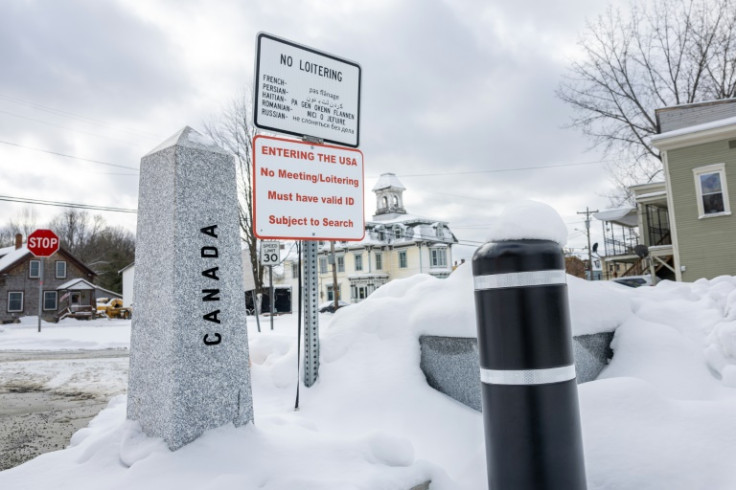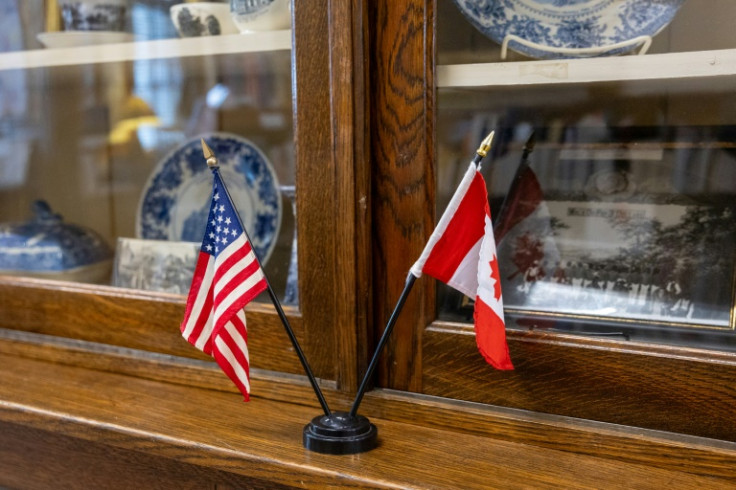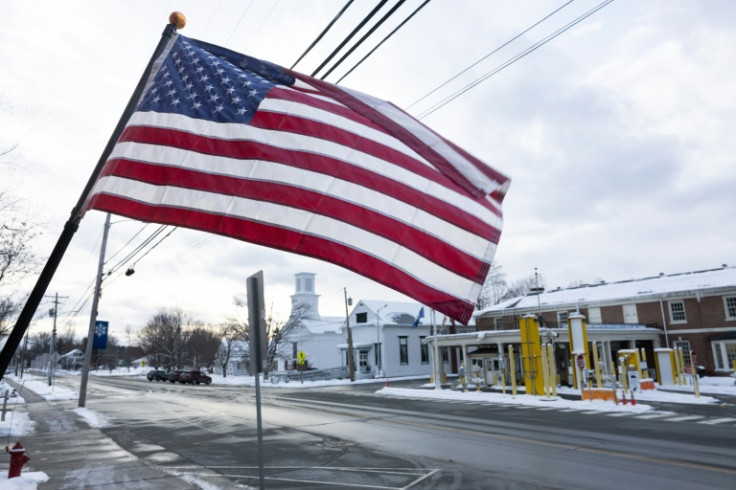Residents Of Canada, US Border Towns Fear Trump Creating Divisions

A shared library, sports fields and fire stations. The American border town of Derby Line and its Canadian twin Stanstead have been living in harmony for more than two centuries, but their bonds are being tested by US President-elect Donald Trump.
"There is uncertainty. Are we going to maintain our good relations?" says Jody Stone, the mayor of Stanstead, Quebec.
A black line that runs across the floor of the Haskell Library, which also serves as a concert hall, marks the US-Canada border.
The front door is on the American side, but Canadians don't need to go through a customs checkpoint to gain access. Inside, Americans and Canadians regularly cross paths as they browse the library stacks.
"We have very, very strong ties," says Sylvie Boudreau, president of the library's board of trustees who lives in Stanstead, adding that Trump taking office on January 20 could bring uncertainty to the

Since they were founded in the late 18th century, the twin towns have relied on each other.
The Canadian town of 3,000 residents would get help from Derby Line's fire department in emergencies, and similarly would offer help to its American neighbors when needed. They also share water and sewage, an ice rink and basketball courts, and American educators teach Canadian schoolchildren.
But everyone has been on edge since Trump's election win in November, and even more so after his comments about tightening security at the border to stop illicit drugs and migrants from crossing into the United States, and slapping punishing tariffs on Canadian imports.
The latter is a real concern for businesses in the region, particularly quarries and companies that sell granite, as well as finished countertops and tombstones to the United States.
Mayor Stone, who owns a distribution company, is preparing for the possibility of Canadian retaliatory duties on American imports.
"I'm preparing myself, I'm making sure to buy as much as possible in Canada because if there's ever a problem with the Americans, I have to be able to supply my customers in Quebec," he explains.

On the US side of the border, Trump's remarks are also disconcerting to Americans, who consider the ties forged since the two towns' founding to be more important than politics.
Trump's trolling of Canada, including calling it America's 51st state, does not make the United States a good neighbor, says Derby Line resident Rachel McDowell.
"I like Canada. I like going there. I don't have any problems with Canada," says McDowell, 27, adding that she fears Trump's polarizing rhetoric will only create divisions.
Canadian Guy Lemay, a 71-year-old retired police officer, is in favor of strengthening the border as requested by the American president-elect. Ottawa has announced a Can$1.3 billion (US$900 million) plan to beef up patrols with helicopters and drones, and deploy more border agents.
But Lemay, who frequently goes to the United States to fill up with gasoline since it is cheaper there, says he is against imposing tariffs.
"It's going to be rough," he says. "And it's the citizens who are going to pay, on both sides."
© Copyright AFP 2025. All rights reserved.





















